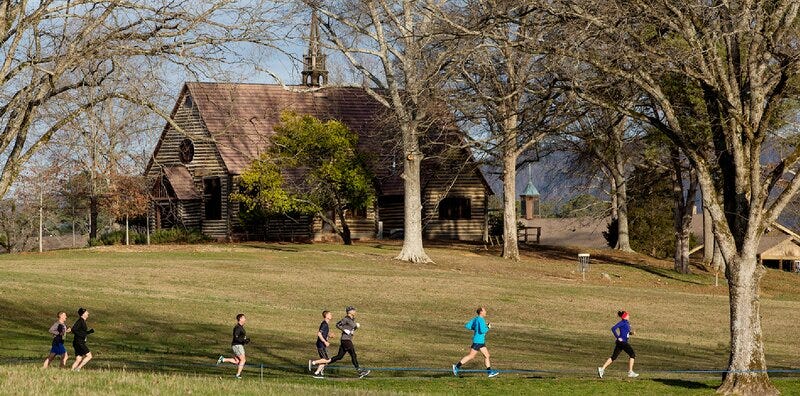Auberry, Berry College, Charleston, Escondido, Robie Creek + Vermont's Northeast Kingdom
Plus: the surprisingly simple training of the world's fastest marathoner + the harm of ultra-processed foods
Good morning, friends! ☀️
We’re waking up to a chilly sunrise here in Atlanta this morning, so it’s beginning to feel like fall for real here — finally! What that means too, of course, is a fall season that brings lots of celebrating (and overeating).
I absolutely love Halloween — my son is as into it as me, and we’re planning a graveyard for the front yard filled with skeletons and lights — but what I also know is how much I indulge during the season, and how doing so each year can have a cumulative effect on the body.
Between giving up alcohol a little over a month ago and the reading I’ve been doing since last year — including Daniel Lieberman’s Exercised, and more recently Mark Bittman’s Animal, Vegetable, Junk — increasingly, my thoughts are pulled toward the idea that what we put into our bodies is equally (maybe even more?) important as how we move with them once they’re fueled.
I’m learning more than I ever imagined about our individual and societal relationship with food, especially from Bittman’s book, whose subtitle — “A history of food, from sustainable to suicidal” — says it all. He traces our long journey as a species from hunter-gatherer groups, in which our diets were marvelously varied, to our current agriculture-based mass society, in which we stay in one place and eat the same (now, largely processed) foods all the time.
And what we’re eating in America in the 21st century is leading to outcomes like the ones the Centers for Disease Control highlighted in a news release this week, which reported that the number of states with high rates of obesity had more than doubled. (And that’s not over the past 20 or 30 years. It’s since 2018.)
What strikes me is, as healthy as we try to be as runners, there’s an entire industry of processed “health” foods for athletes that we consume, from gels to bars to sports drinks. And if we didn’t run as many miles as most of us do, these foods could have the same effect on us that this week’s C.D.C. report describes.
Even more, food seems like it ought to be an obvious, straightforward topic to talk about. We already know what we should eat, right? But our actions, at least as a society, belie that. And that tells me how powerfully the environment we live in has changed, even over my lifetime.
I share all this with you not because I have all the answers, but rather that it’s at an embryonic stage in the back of my mind, and I plan to have more to say and write about it soon. It’s a journey I know I’ve mentioned before, but now I think I’m ready to go on for real.
As always, keep in touch and let me know how your running/life/etc. is going — and I hope you get out to have an amazing run today.
Your friend,
— Terrell
Races you might love running
Heavenly Half Marathon
Auberry, Calif. | Sunday, December 4, 2022
You’ll run among the stunningly scenic hills and canyons of the Sierra National Forest that look down onto the small town of Auberry, Calif., at this race, which unfolds along a point-to-point route that’s almost all downhill. The course gradually descends from just over 4,600 feet above sea level at the start to just under 2,000 feet by the time you reach the finish line at Auberry Elementary School. Called “fast” and “incredibly scenic,” this event is part of a series that runs through some of California’s most gorgeous landscapes.
$80 and up | Sign up here


